Interview with photographer Yulia Baeva
about the creative path, inner honesty and the freedom to see beauty in women through the camera.
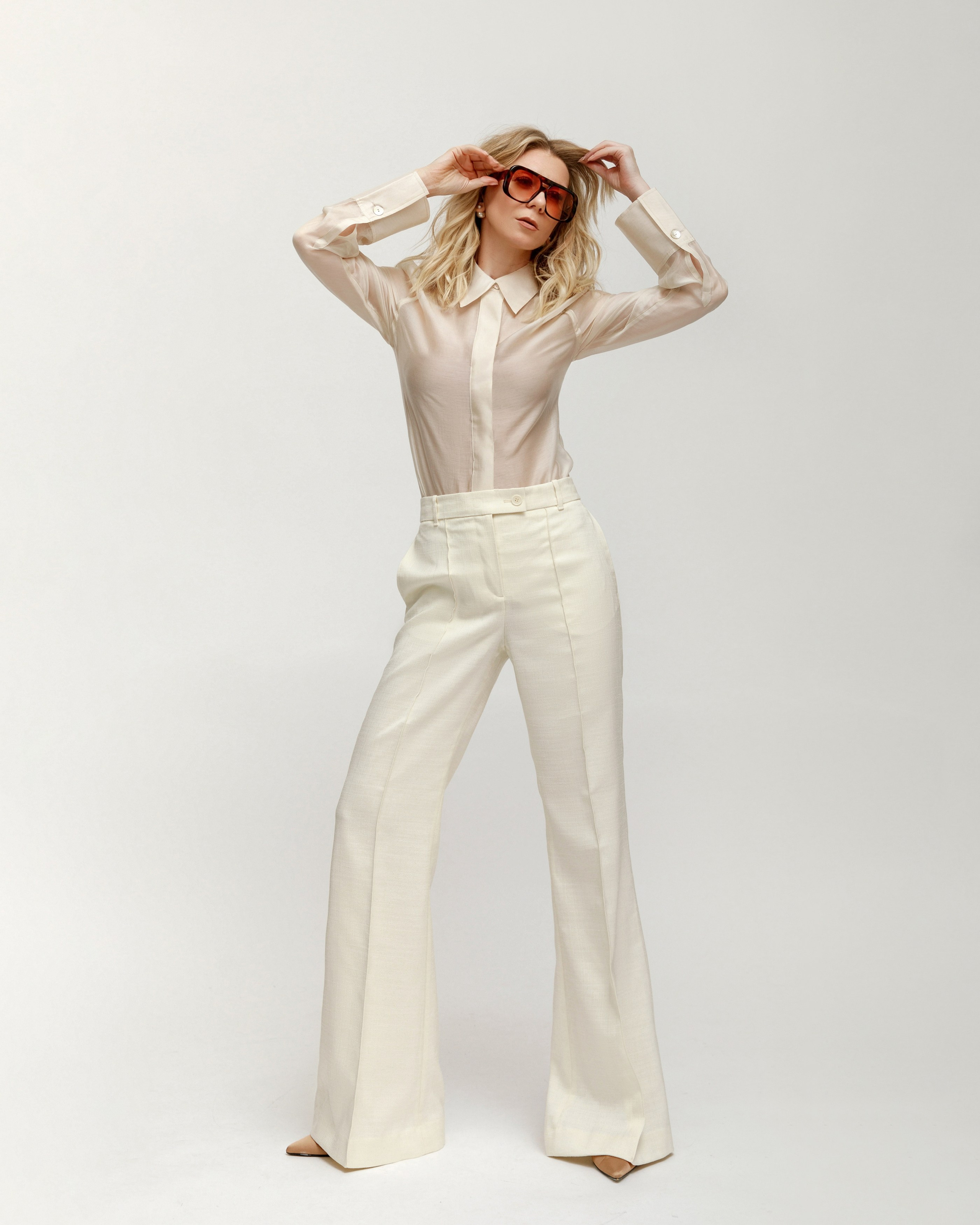
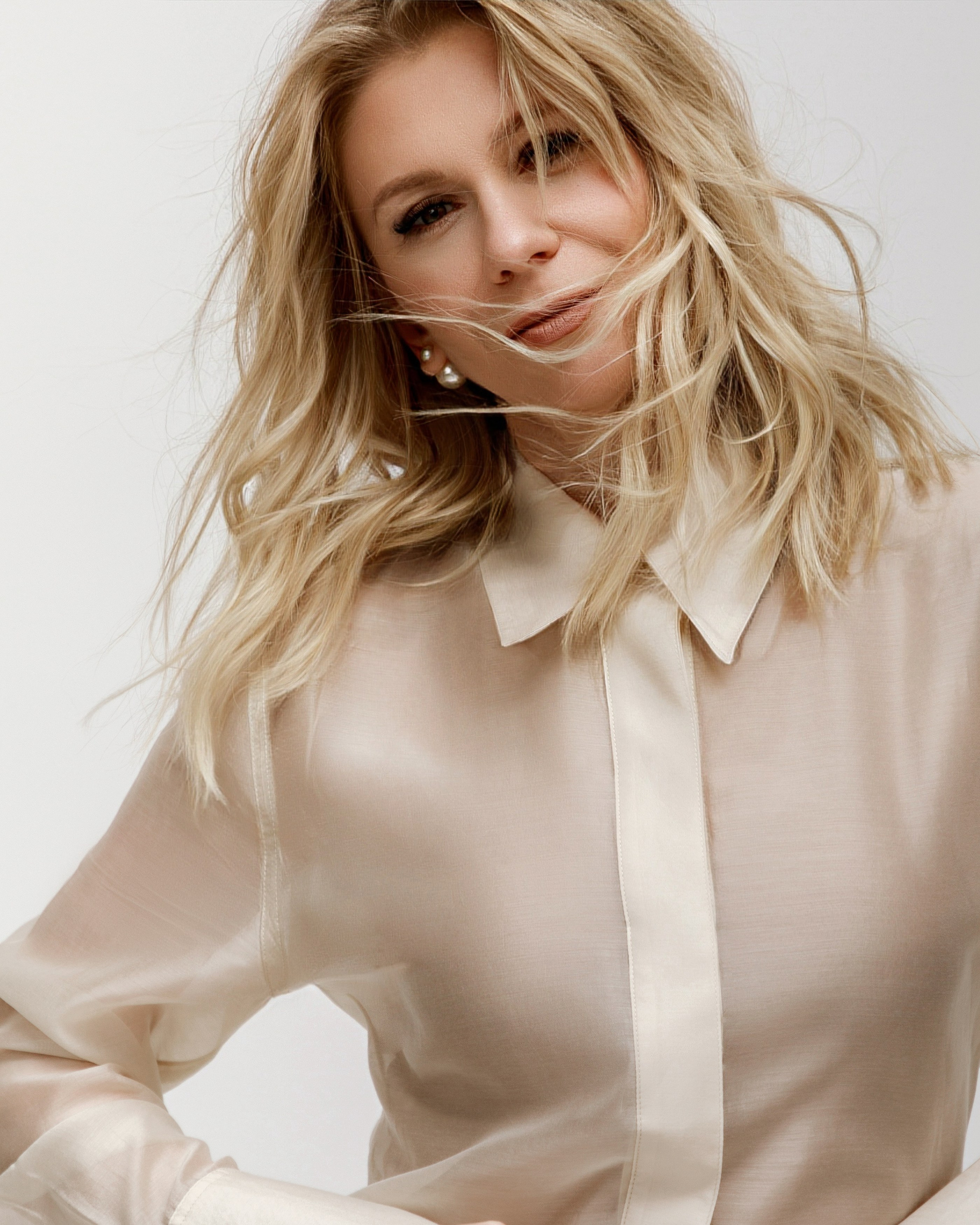
— Yulia, you are one of the talented photographers from Ukraine, now living in the Czech Republic. How did your path to the profession of a photographer begin?
I have never looked for a profession. I have always looked for meaning. My first camera did not appear right away. Before that, there were years of work in creative professions: graphic design, retouching, web design, copywriting, SMM. I collaborated with glossy magazines, printing houses, agencies and bloggers — and all this gradually formed my visual thinking and visual acuity. For a long time, I was looking for a form in which I could be completely myself.
For 12 years I was inside the world of image and beauty, and one day I realized that I wanted to create myself. Not to correct someone else’s, but to see in my own way. That’s how the camera ended up in my hands. In 2018, I graduated from photography school and realized: everything that came before was preparation.
— You emigrated from Ukraine. How has this affected you as a photographer?
It changed everything.
When the war started, it was like the ground had been pulled out from under my feet. After 2014, I already felt torn apart, but then it became even more painful. First, I left my hometown, then I had to leave the country. Home ceased to be a point of support — physically, emotionally, geographically. I have been living without a sense of home for 11 years…
When there is war around, moving, a foreign country, loneliness. When you wake up in a new reality, and all you have is a camera and a feeling that no one is waiting for you. Life goes on around you, and it was so psychologically difficult for me that I wanted to disappear. But it was precisely at such moments that I took the camera. And went to people. Not for money. For meaning. For contact.
Photography has always saved me. Thanks to the shoots, I got to know other women — from Ukraine, Georgia, Kazakhstan, the Czech Republic, Austria… It gave me the opportunity to be needed. Useful. To see someone smiling, looking at their reflection in the frame. And in these stories, I recognized myself. We are all afraid of something. But we still continue to live and believe in the best. And then you find support again.
Not external — internal, and you understand that even if everything is falling apart, you can still do beautifully. Honestly. From the heart. And that means — not in vain.
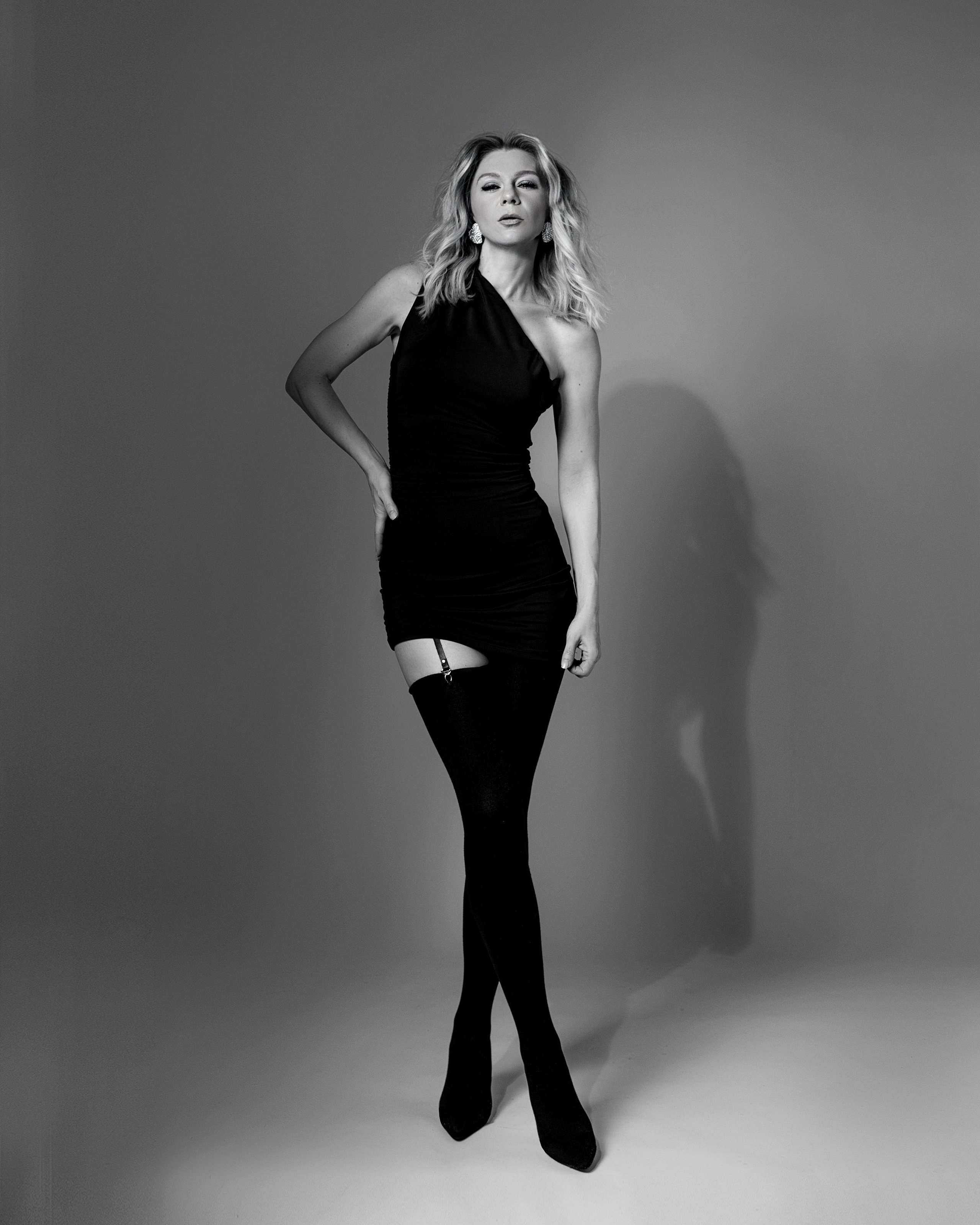
— What was your first encounter with photography?
The real meeting happened in 2018, when I graduated from photography school in Ukraine. That was when I first felt: this is not just a profession — this is my voice. Before that, I was exclusively engaged in content and product photography. But I do not count this period in my 7 years of experience, since my desire to work with people was just forming then.
From that moment on, the journey began: working with models, first commercial shoots, team building, moving, fears, internal barriers — to becoming a sought-after photographer in another country. And all this time, I held on to one thought: I am doing my own. This is not an accident. Photography has become for me a way not only to speak, but also to motivate the women I work with.
Basically, I shoot studio portraits and boudoir in an aesthetic style. It is important to me that every woman who comes to me sees in the pictures not just beauty, but the real herself. Confident. Beautiful in her uniqueness. I create photographs that can become a new beginning for each person. Raise self-esteem. Help to declare yourself. Or remain something very personal, intimate.
— You often work with women. What do they bring with them, besides their looks?
They bring their insecurities, their hopes, their doubts. Sometimes tears. Sometimes — the dream to show their true selves, at least once in their lives. The screen of trends and public perception leaves its mark, women cannot relax and be themselves, not pretend.
Many come with the phrase: “I’ve never liked myself, but I want to try…” And at that moment I understand: photography is not about appearance. It’s about permission. About being yourself and not being afraid. And I always feel that there is a person behind the image. And I don’t just choose a pose, I create an atmosphere in which you can breathe. Where no one will say: “you’re not like that.”
I suggest how to dress — not too revealing, not vulgar, but feminine, with a light trail of sensuality. I am for aesthetics, elegance and personal individuality. This is not just a photo. This is a meeting of a woman with herself, where I am only a guide.
— What is your attitude towards TFP and barter photo sessions?
I am not against TFP. When both parties (the photographer and the model) invest equally — time and respect, then there is a result and no one feels “used”. And such shots then live longer than commercial ones.
But in Prague, a lot is built on barter. When a commercial project is assembled according to this principle: a photographer for a “mark”, a make-up artist for free, models “for the portfolio”. And the organizer makes content, sells the product and makes money. And then you look and think: stop, where is the honesty here?
I don’t like being part of this scheme. I respect my work and when people come to me as a professional — not for free, but for the result, for the style, for the atmosphere. Barter is possible. But only if it is based on respect, transparency and honest value on both sides. Otherwise, it is just convenient savings at the expense of others.
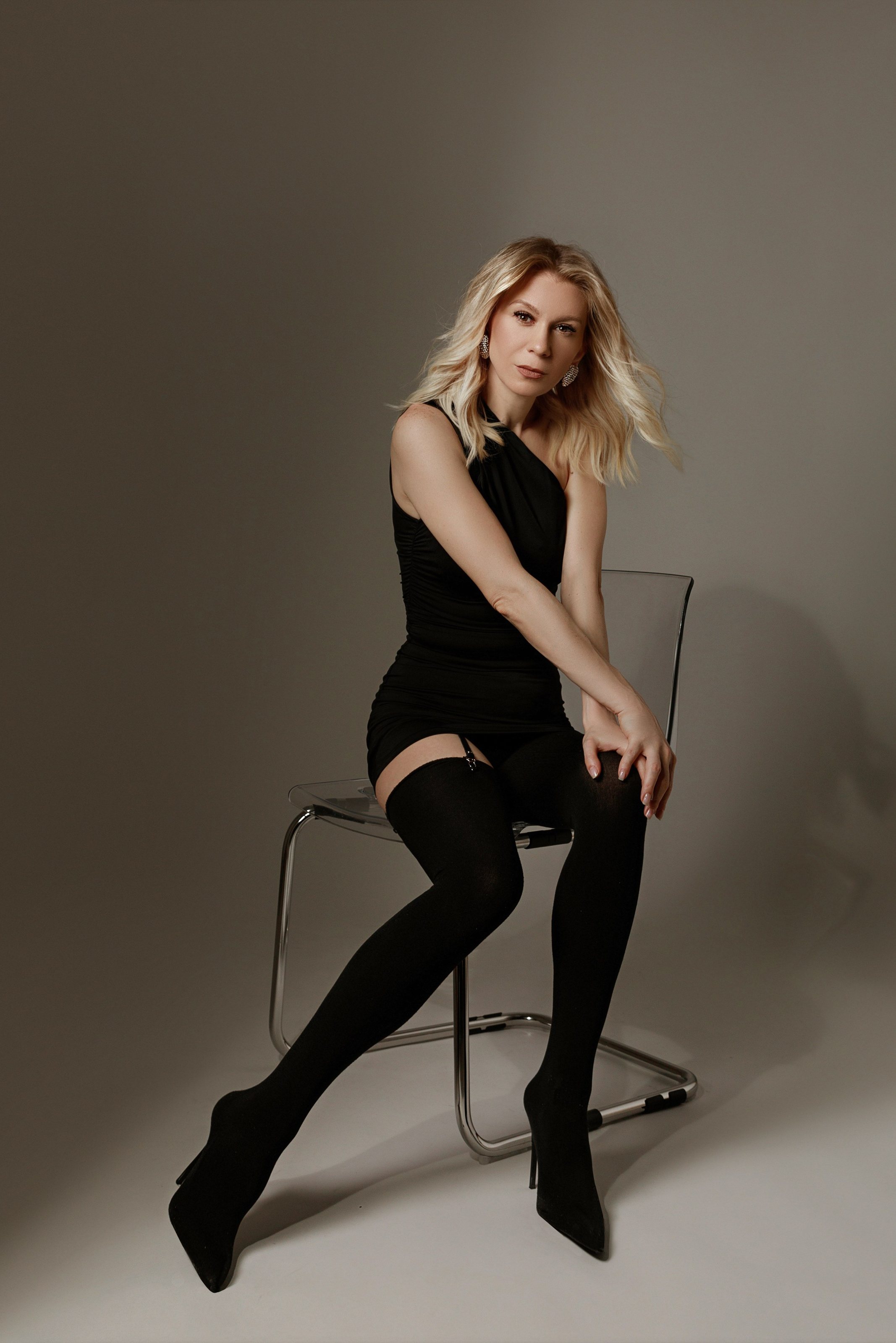
— How to stay afloat in such a competitive environment as photography in Europe, especially in Prague?
Honestly, competition doesn’t bother me. Because I never focus on how others do things. I focus on what resonates with me—and with my clients. People feel it. It’s not about trends. It’s about honesty, contact, involvement. I don’t just shoot—I live every shoot with the person. And they leave feeling like they’ve truly been seen.
Yes, someone can repeat my shot. But no one will repeat the way I see it. My focus is on depth, and that always remains in the memory.
— Dozens of clients trust you every month. You are famous among photographers, you are most likely copied. How do you feel?
It is both joy and responsibility. Each shoot is not just photographs, it is a feeling that a person will have when they close the album or scroll through the gallery. If a girl looks at herself after the shoot and says: “I like myself. This is me” — then my day was not wasted. And this is more important than likes, popularity, any titles.
And as for recognition and copying — let them copy. It means that I go my own way so honestly that it is visible. I do not try to be “on trend”, I like to be in the truth. In contact with myself, with the light, with people. I am not afraid to be repeated — because the original is always felt.
— You also help choose looks. How important is style in a photo shoot?
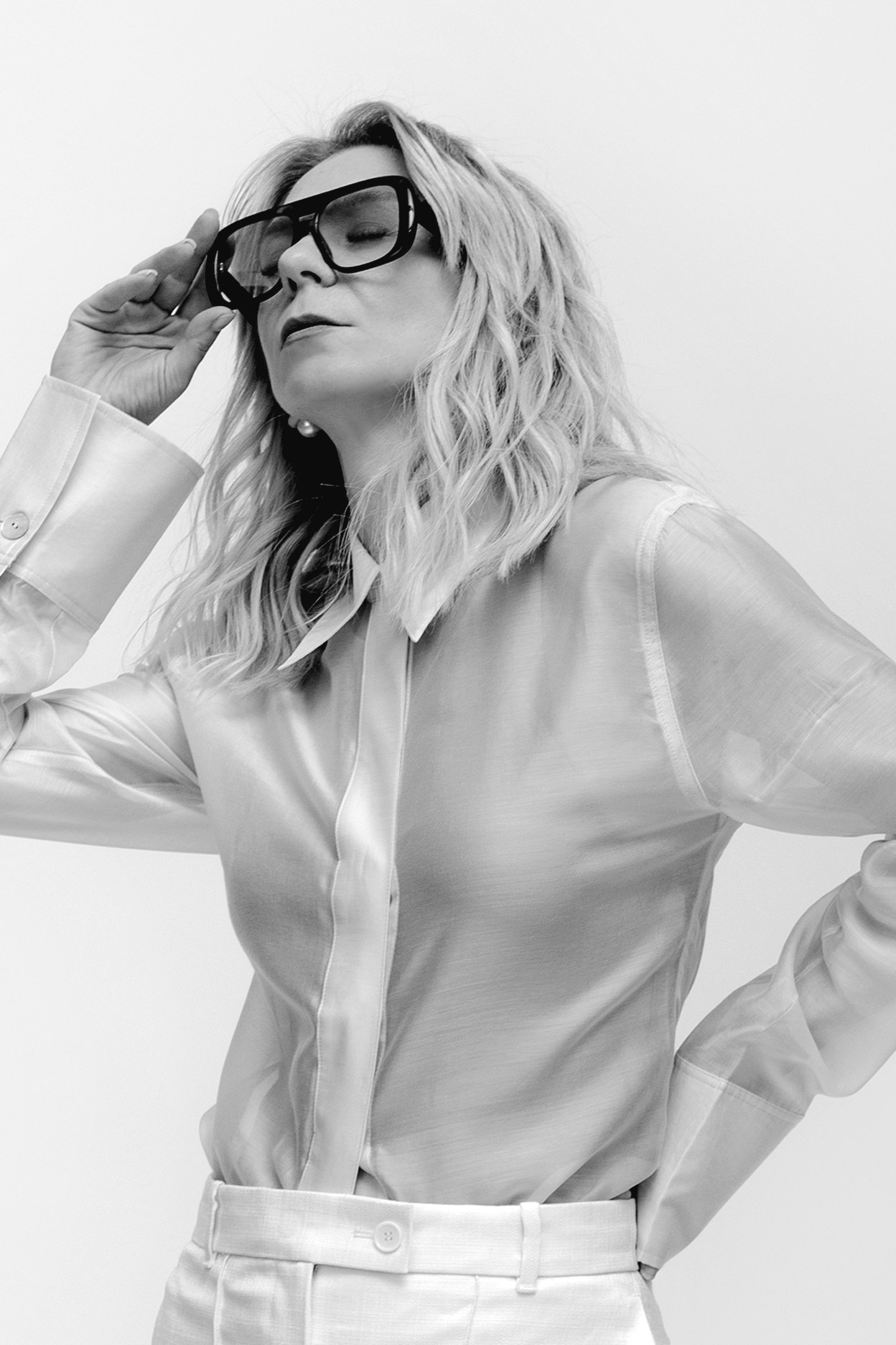
Very important. The image is not just clothes. It is a story that we tell together. I suggest what to choose to feel like before the shoot.
I don’t like “head-on” outfits — too revealing, vulgar, without a hint. I am used to a style that has a slight hint of sexuality, with a sense of proportion.
I feel what suits a woman — and I choose an image not based on trends, but on her inner state. It happens that you look at a person and understand: she needs something different. Calm. Restrained. Or, on the contrary, bold, to shake things up.
And when she sees herself in the photo — real, not overplayed — then that very effect appears: “This is me. And I like myself.”
— You do a lot of boudoir shoots. Is it true that they change women in some way?
Absolutely. Boudoir is not about lingerie, as many people think. It is about the opportunity to completely trust the photographer and follow your inner needs without being embarrassed by your desires.
It is about contact with yourself. About feeling: “I am a woman. I can be different. Strong, gentle, passionate.” I have seen how women are closed and tense at the shoot at first… And then they open up. Strength appears in their voices, freedom in their poses. They begin to look at themselves differently.
After such shoots, someone begins a new chapter in their life. Someone receives a marriage proposal. Someone hears from their husband for the first time in 10 years: “You are so beautiful…”
Boudoir can be a good practice for feelings that are clamped inside and for feeling like yourself. This should not be broadcast to the world right away — first of all, do it for yourself. By trusting the process, you can discover your clamps in the body and immediately try differently. And after such a photo shoot, everything will change. From the gait to the relationships.
— There are so many master classes and courses for photographers now. Everyone is selling knowledge. What do you think about this?
To be honest, the market is overheated. Too much packaging and very little substance. They promise to learn “shooting that sells” in a week, to reach a stable €1,500 per month. Although no, already €500-700 per month. Do you feel how much the market has sagged?
And what is in reality? Lots of loud phrases, identical schemes and zero individual approach to the client. But everyone has Telegram channels for pouring from empty to empty.
I also trained people. And I know: the result of a student is not a beautiful presentation or a stylishly dressed model, but personal attention, feedback, analysis of mistakes. In 2024, I put all training aside and took up shooting completely. I was interested to see and be convinced of my own expectations of what this would lead to.
It’s funny how photographers at MK sell the same schemes to each other. For a beautiful and slender model, the light will always work well, due to this, they sell you the same thing dozens of times. Those who understand this go into their own creativity.
Training should reveal, not disappoint, give an understanding of how to hear the client, see the light, work with emotion. Because technique is secondary. Primary is your view. And it cannot be bought in PDF format.
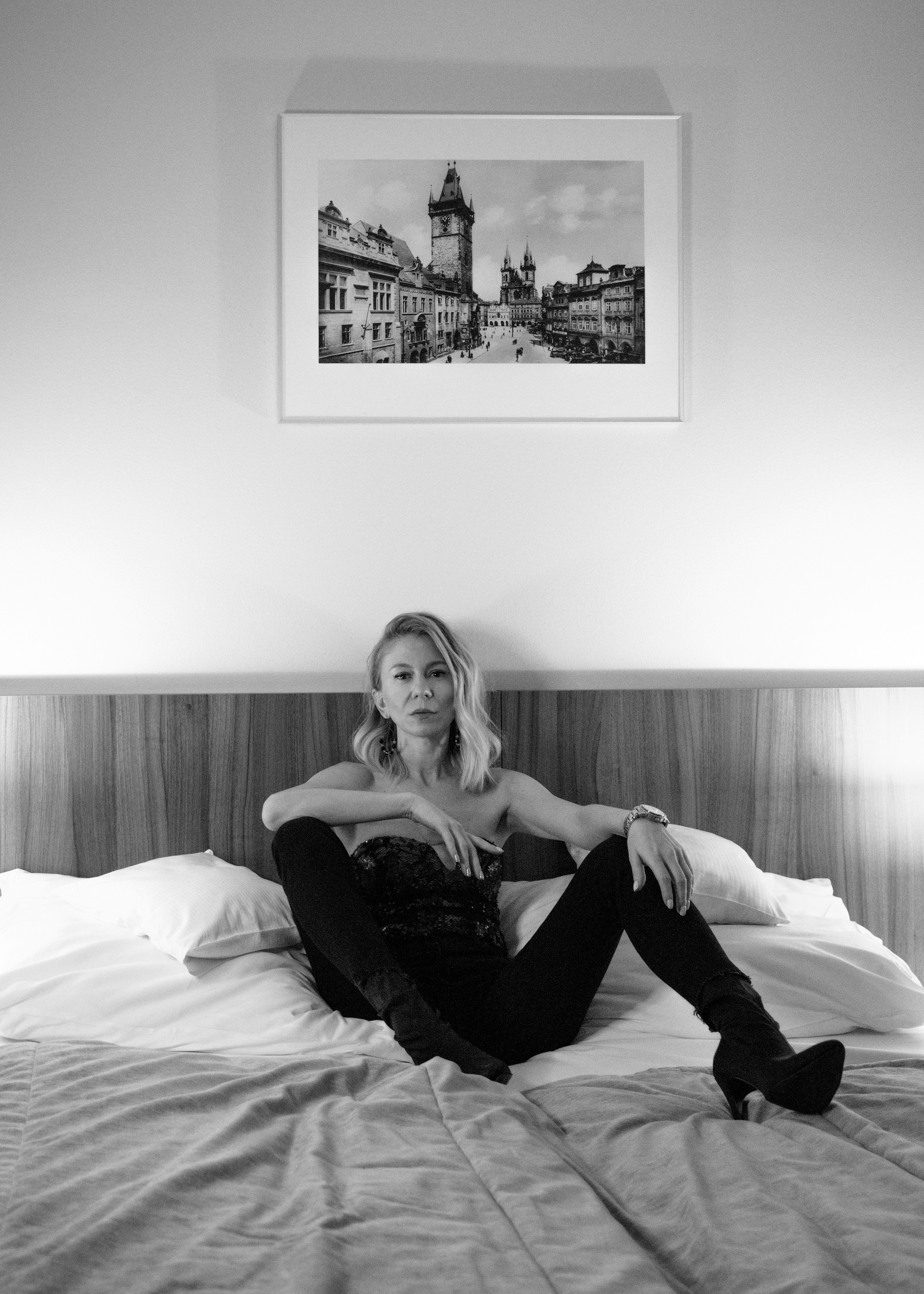
— What do you think about the work of makeup artists in Prague? How to understand what makeup is needed for a photo shoot?
Yes, let’s touch on this topic. Now in Prague, makeup has become a separate show. Prices have skyrocketed, the atmosphere is like a casting call on TikTok. They do makeup perfectly… for Reels. For their content. But not for the client. Not for the format of the shoot, not for the lighting, not for her face.
It is not clear where the information came from that there is makeup for a photo shoot and all makeup artists do it, explaining that it is different from everyday makeup or for events.
I will tell you a secret)) any makeup should be long-lasting, visible on the face up close and deal, not change the tone of the face and make the girl more beautiful. And the makeup artist should accompany the client at the photo shoot and monitor the quality of his work in the process, and not shift it to the photographer, who will then retouch it. Accompaniment of a makeup artist is the main thing in the makeup service for a photo shoot. But for some reason no one does this, only for an extra fee.
Unfortunately, this is how most people work and teach others the same presentation. That’s why I always clarify what kind of makeup artist the client has — because the client’s mood is important to me. And not just a beautiful cover in the makeup artist’s stories.
— Why, in your opinion, have people begun to trust photographers less, to believe less in the “truth”?
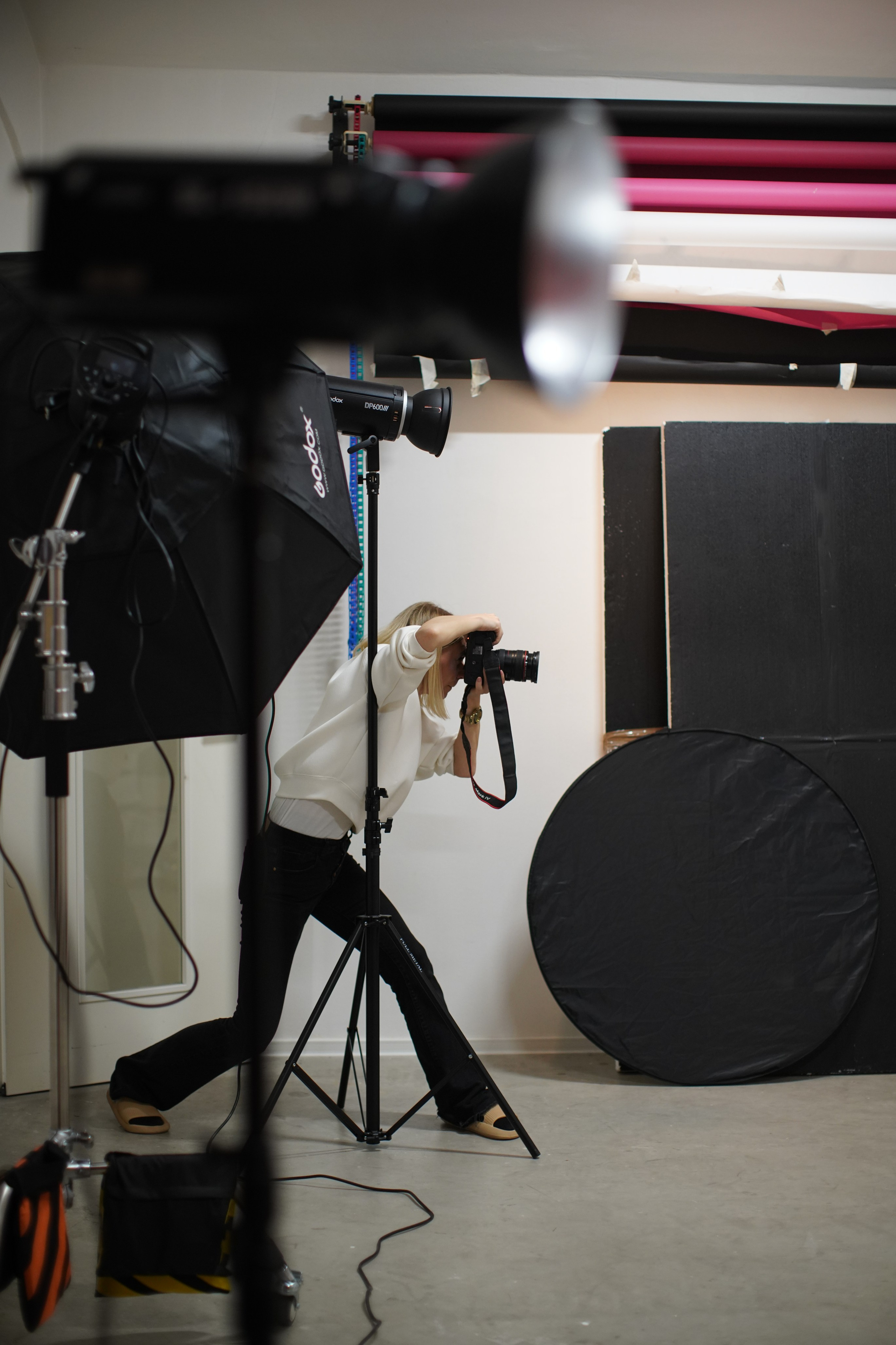
Because there is too much deception.
Photography has become content. Packaging. A product for trends, not for a person. Everyone is chasing a wow-picture, but often there is no soul in it. No truth.
People feel it. Many are tired of staged “perfect” lives, of “retouched beyond recognition” faces, of photographers who mechanically work through the shoot — without warmth, without real contact.
I always say: you can’t pretend to be in love with people. Either you are really with them, or you are not. And those who work formally, without empathy — lose clients. And those who know how to be in the truth, in the depth, on the contrary, become professionals.
— Who are you outside the camera?
I am a person of structure and chaos at the same time. There is an artist and an organizer inside me. Ten years of ballroom dancing. Art school, French, art history and cultural studies. All this is not just a list, but my support, my visual and emotional baggage.
It is important for me to develop in order to see subtly. To feel the form, the light, the person. I am demanding — of myself, of the team, of the result. I do not “just shoot”, I create an image. And I always set the bar for myself a little higher than yesterday. Because otherwise it is not interesting.
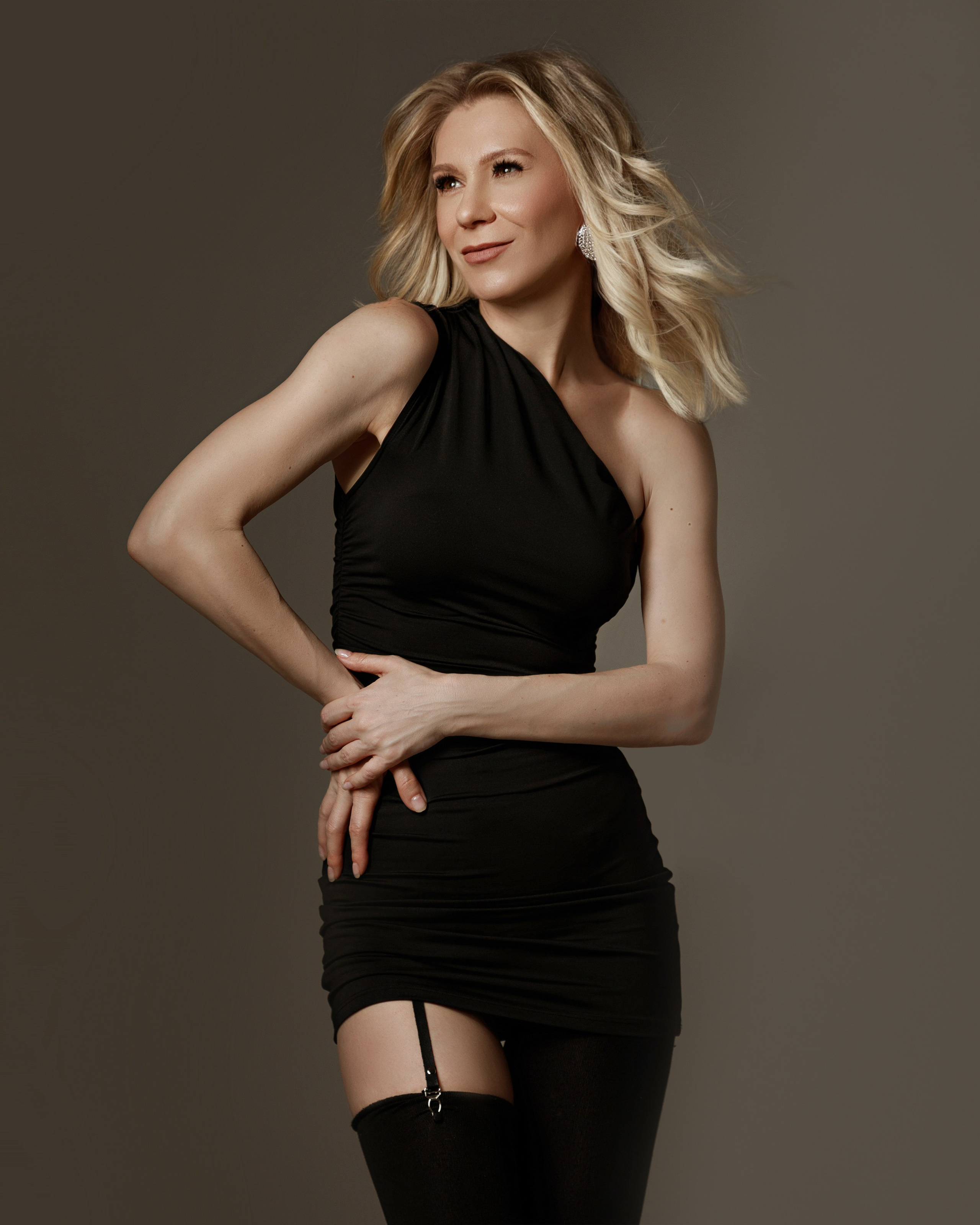
— What is important to you in your work today?
Honesty. And respect for the person on the other side of the camera. I don’t shoot to “get into trends.” I don’t seek approval. Something else is important to me — for the frame to live through time. For it to remain in a person’s life not as a pretty picture, but as a moment of self-acceptance.
Unnatural perfection is in fashion today. But I want to go further — to the essence. It’s important for me not to copy. Not to hide behind poses. But to see. The person. His light, his fatigue, his beauty, which he himself may not notice.
Sometimes a woman looks at the frame and says: “I didn’t know I could be like this.” And sometimes she’s just silent. And this silence is more important than any words. Because this is self-acceptance. And this is value. This is why I continue.
— Is there anything you are proud of in your career?
Of course, there is. The fact that I didn’t stop when it was hard. The fact that I persevered, left, adapted — and still remained a photographer.
The fact that I followed my own path, without “influential acquaintances, ” without investments, without help. Only with a camera, taste, and an inner core.
I am proud that in 2022 my work set a wave in studio photography in Prague — and following my shoots, dozens of other photographers came there.
The fact that I am in the TOP-100 according to the international competition 35AWARDS and PortraitPhotoAwards.
But most of all — the trust of almost two thousand clients from Ukraine and Europe. Their reviews, their gratitude, their return — this is a real victory for me.
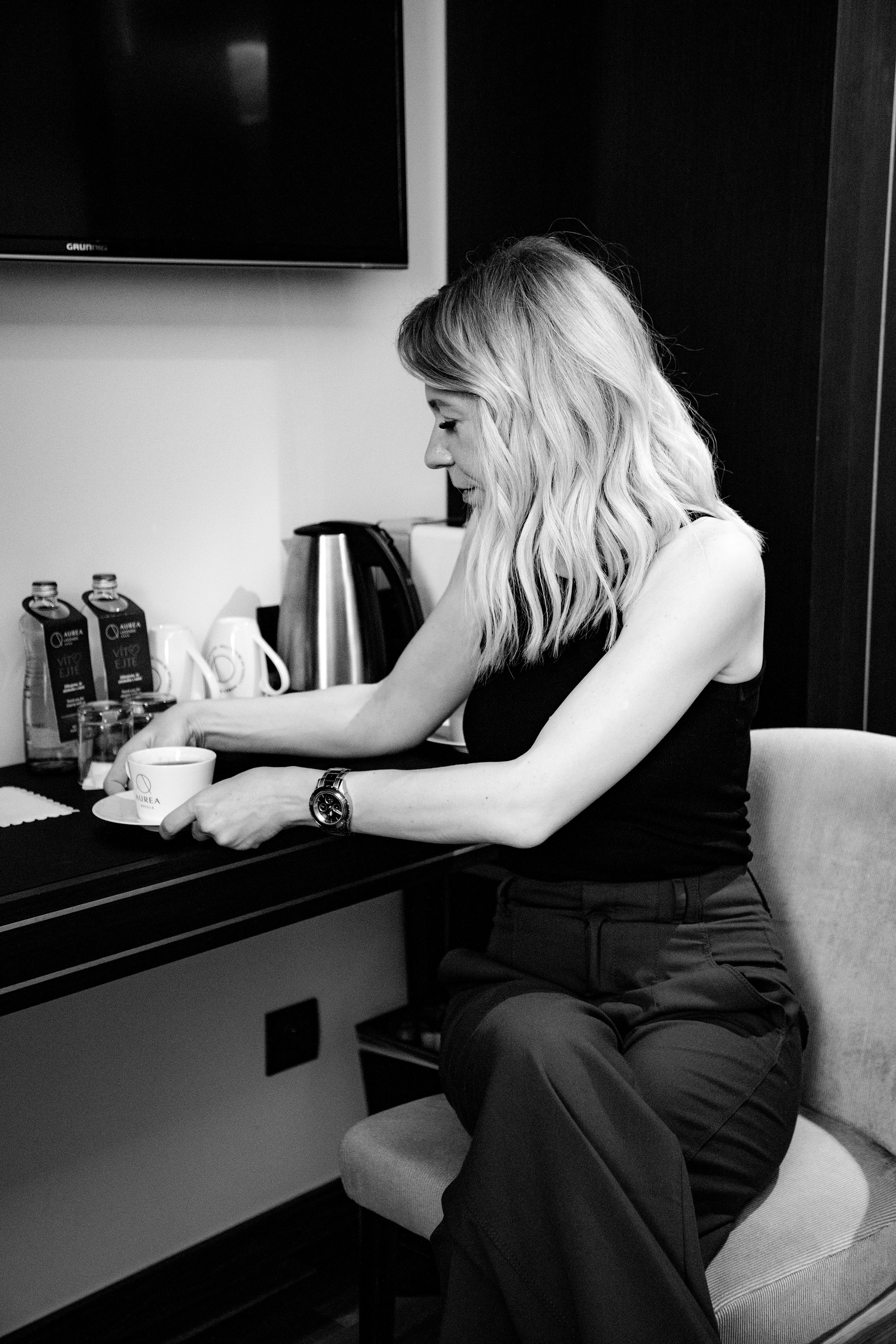
— And what does “success” mean to you today?
Success is not a cover, not millions, not a queue of clients.
For me, success is when I live not out of fear, but out of freedom. When I can choose who to work with, what to spend my time on, what not to do, even if it pays well.
This is when after a shoot a woman writes: “I didn’t know I could be like this.” Or: “Now I believe in myself a little more.”
When my students grow up and sell their own services — and remember where they started. Success is an inner core.
When you don’t lose yourself, even if everything around you is changing. These are not cries of recognition, but silence inside. In which you know for sure: I am going where I want.
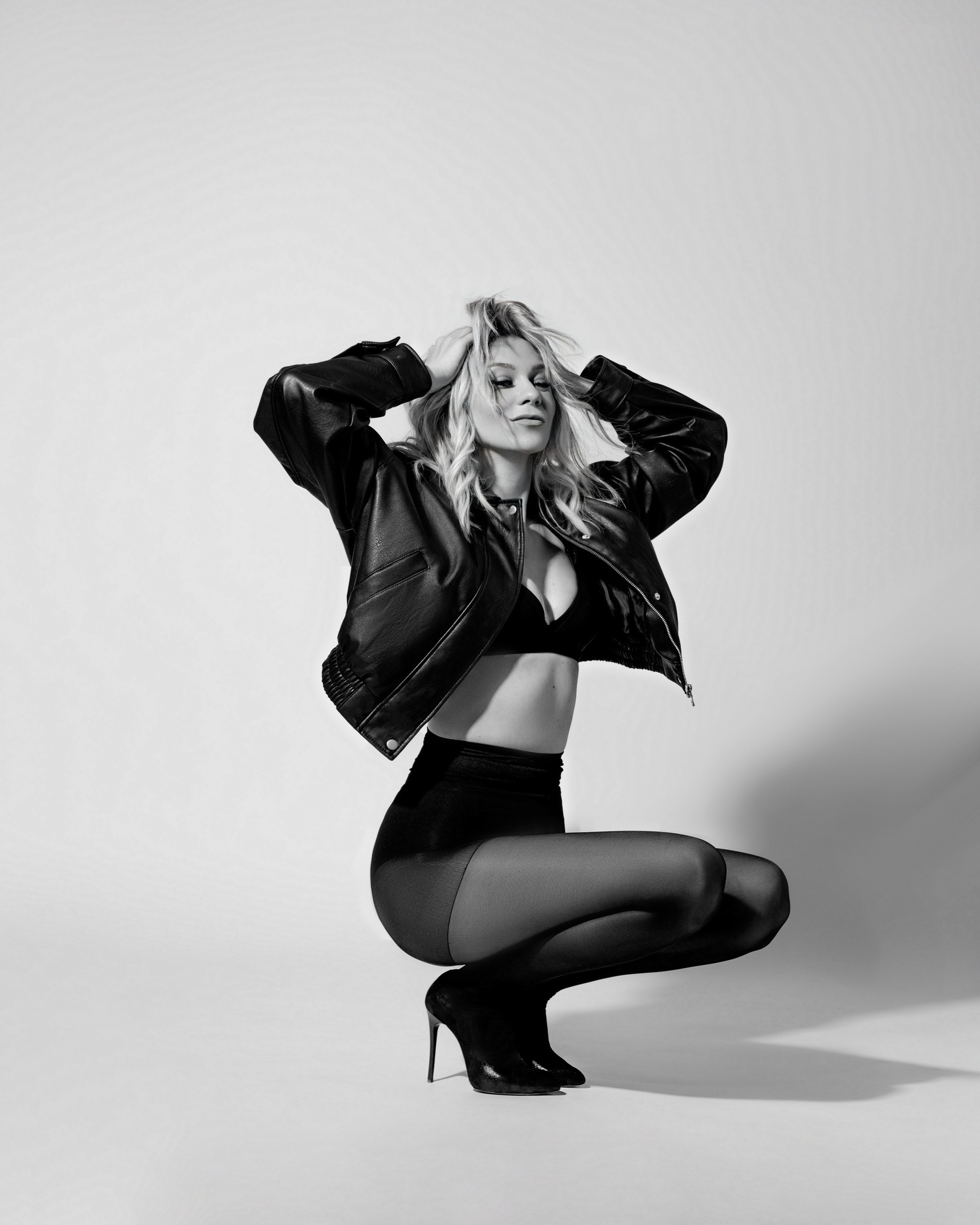
Photographers: Yulia Baeva / Alex Borodynkov. Editor: Ekaterina Poddubnaya. Copyright: Gleb Savchenko. Date: April, 2025. Location: Prague, Czech Republic. The project was created for the website: baevаphoto.com.
